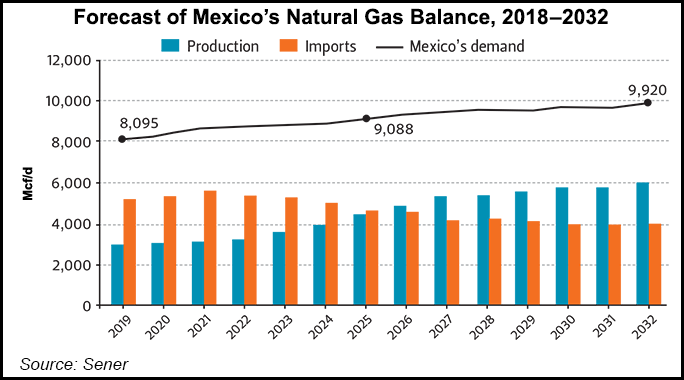Shale Daily | NGI All News Access | NGI Archives
Mexico Shale Ban Could Hit NatGas Production, Increase Need for U.S. Imports, Says Baker Institute — Bonus Coverage
Banning hydraulic fracturing (fracking) and the development of the country’s vast shale resources could defeat Mexican President Andrés Manuel López Obrador’s policy aims of limiting natural gas imports, according to an issue brief put together by Rice University’s Baker Institute for Public Policy.

“Our analysis leads us to posit that whether or not shale development is banned in Mexico, little will change in the near- to medium-term since above-the-ground factors such as limited access to water and a lack of infrastructure are likely to stall shale development,” the paper, published earlier this month, said. “Nonetheless, in the long run, a ban on shale — even if it only stands for the six years of AMLO’s [López Obrador’s] presidency — may have adverse consequences in the absence of an effective scheme to diversify Mexico’s gas supply reserves.
“This is because beyond retarding new production, a ban would shelve the establishment of regulatory and legal frameworks that could encourage shale development…A ban would also impede foreign and domestic investment and innovation, which are both central to shale’s success in the United States.”
Mexico boasts 141.5 Tcf of prospective unconventional gas reserves, according to upstream regulator Comisión Nacional de Hidrocarburos, compared to 76.3 Tcf of prospective conventional reserves. But López Obrador has been adamant that Mexico will not allow fracking in the country, despite often contradictory remarks from others within his administration.
© 2024 Natural Gas Intelligence. All rights reserved.
ISSN © 2577-9877 | ISSN © 2158-8023 |
